Main causes of edema and fluid retention in the body
Before asking the question of how to remove excess fluid from the body, it is necessary to understand the causes of edema and the consequences to which this process can lead.

Table of Contents
- Main causes of edema and fluid retention in the body
- Simple tips on how to remove excess fluid from the body
- Folk methods of removing excess fluid from the body
- Pharmacy remedies for fluid elimination
- Ointments and creams to relieve leg swelling
- Compression stockings
- How to remove excess fluid from the body Finnish sauna, Roman bath or hamam?
- How to determine the percentage of excess water in your body
- Symptoms and consequences of excessive water content in the body
Swelling and fluid retention in the body can be caused by a variety of reasons, including:
- Heart failure: Heart disorders can lead to poor circulation and stagnation of blood in the tissues, which causes swelling.
- Kidney disease: Kidney disease can lead to impaired filtration and excretion of excess fluid from the body.
- Increased pressure in the veins: This can be caused by various reasons such as venous insufficiency or thrombosis, leading to fluid retention in the tissues.
- Poor lymphatic drainage: Disorders in the lymphatic system can lead to lymph stagnation and the development of edema.
- Overeating salt: Consuming excessive amounts of salt can retain fluid in the body.
- Hormonal changes: Some hormonal disorders can cause fluid retention, such as in women during menstruation or pregnancy.
- Consequences of prolonged standing or sitting: Having a sedentary lifestyle can cause poor circulation and swelling in the legs.
- Gout: Deposition of uric acid in the joints can cause inflammation and swelling.
- Alcohol consumption: Alcohol can lead to dehydration and retention of moisture in the body
- Some medications: Some medications can retain fluid in the body as a side effect.
Simple tips on how to remove excess fluid from the body
1. Drinking regimen:
- Drink clean water. This may seem counterintuitive, but when you are dehydrated, your body retains water. Make sure, that you drink enough clean water throughout the day, to help your body eliminate excess water.
- Limit your intake of caffeine and alcohol. These substances have a diuretic effect, which can lead to dehydration and fluid retention.
2. Diet:

- Reduce your salt intake. Salt causes your body to retain water. Limit your intake of processed foods, fast food and restaurant food, which, tend to be high in salt.
- Eat more potassium-rich foods. Potassium helps flush excess water out of the body. Potassium-rich foods include bananas, avocados, spinach, tomatoes and melon.
- Include diuretic foods in your healthy diet. Some foods, such as watermelon, celery, dandelion and cranberries, have a natural diuretic effect and can help flush excess water out of the body.
3. Physical activity:
- Exercise regularly. Physical activity and a healthy lifestyle helps improve blood circulation and lymph flow, which can help flush excess fluid out of the body.
- Try high-intensity interval training (HIIT). HIIT is a type of exercise, that involves short, but intense exercises, followed by rest periods. A HIIT exercise regimen can be very effective at flushing excess fluid out of the body.
4. Additional methods:
- Take an essential oil bath. Some essential oils, such as juniper, lavender and lemon, can help flush excess water out of the body.
- Sleep with your head elevated. This can help improve lymph flow and reduce swelling.
- Wear compression stockings. Compression stockings can help improve circulation and reduce swelling in the legs.
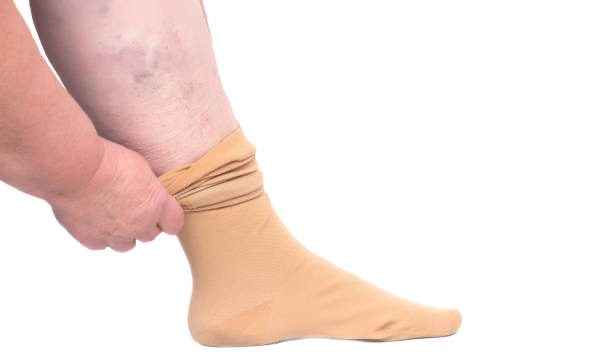
Important:Important:
- Always consult your doctor before using any diuretics or supplements.
- If you have any health problems, such as kidney or heart disease, be sure to consult your doctor before attempting to flush excess fluid out of your body.
Folk methods of removing excess fluid from the body
1. Phytotherapy:
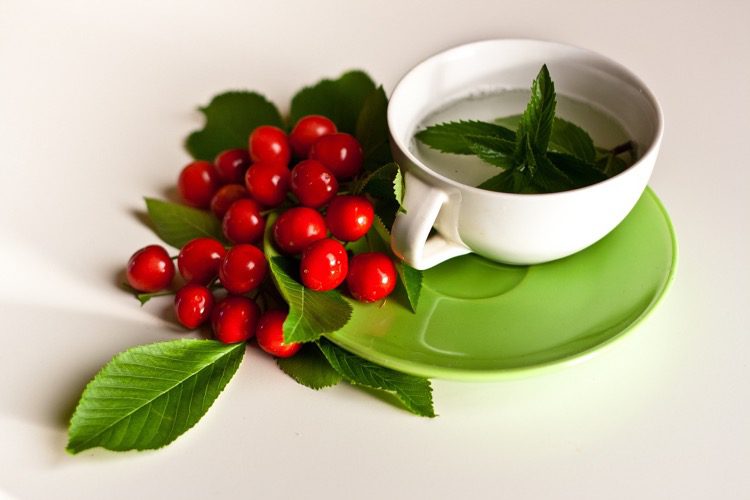
- Decoctions and infusions of diuretic herbs:
- Lingonberries: have diuretic, anti-inflammatory and antiseptic properties.
- Toloknyanka: has diuretic, disinfectant and astringent properties.
- Rosehip: has diuretic, anti-inflammatory and vitamin action.
- Horsetail: has diuretic, anti-inflammatory and styptic properties.
- Nettle: has diuretic, styptic, tonic, tonic and vitamin action.
- Important: Before using herbal collections, be sure to consult a doctor, as some of them may have contraindications.
2. Vegetable and fruit juices:
- Fresh cranberry and apple juice: has diuretic, anti-inflammatory and antiseptic properties.
- Fresh cranberry juice: has diuretic, anti-inflammatory and antiseptic properties.
- Fresh watermelon juice: has diuretic, antipyretic and tonic properties.
- Freshly squeezed cucumber juice: has diuretic, detox effect and tonic effect.
3. Baths:
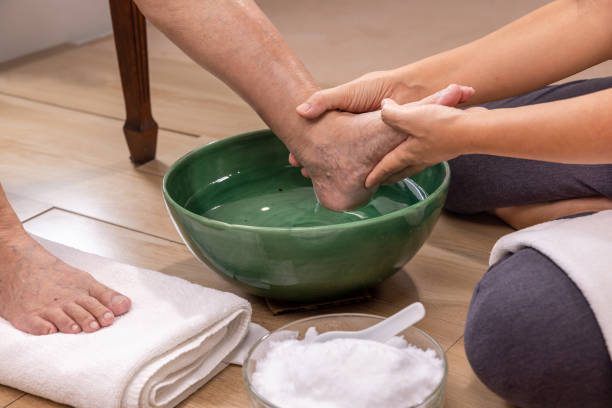
- Sea salt baths: sea salt has a detox effect, improves blood circulation and helps to remove excess fluid from the body.
- Baths with essential oils: essential oils of juniper, lavender and lemon have a diuretic effect and help you relax.
4. Compresses and tight dressings:
- Oat flakes compresses: oat flakes have anti-inflammatory and diuretic effects.
- Cabbage leaf compresses: Cabbage leaf has anti-inflammatory and diuretic effects.
- Tight leg dressings (Signature). Periodic application is possible
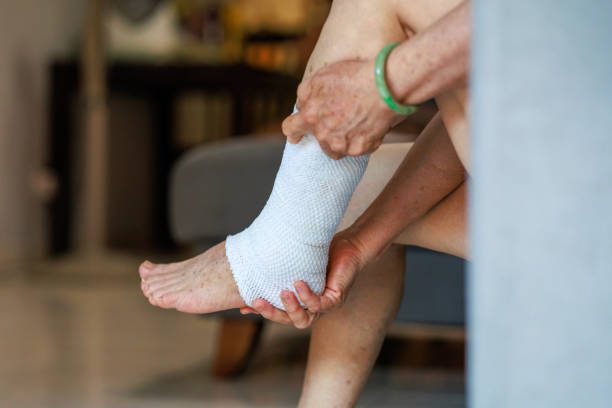
5. Foodstuffs:
- Watermelon: has diuretic and detox effects.
- Cucumbers: have diuretic and detox effects.
- Celery: has diuretic and detox effects.
- Parsley: has diuretic and detox effects.
- Cabbage: has diuretic and detox effects.
Important:
- Folk methods are not a substitute for medical care.
- If you have any health problems, be sure to consult your doctor before using any folk methods.
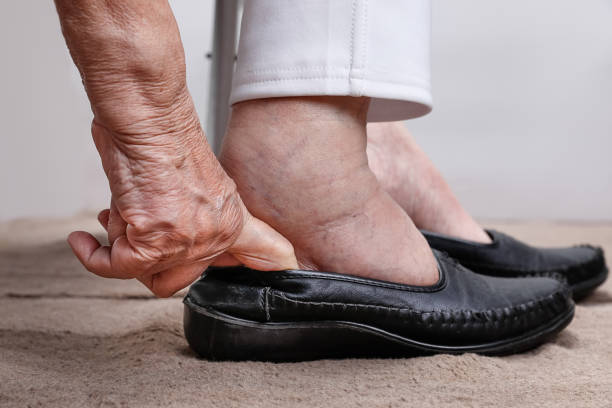
By following these tips, you can help your body flush out excess fluid and feel better.
Pharmacy remedies for fluid elimination
In Ukraine you can buy the following pharmacy remedies to remove excess fluid from the body:
- Diuretics (diuretics) such as furosemide, hydrochlorthiazide, spironolactone, and others. They help encourage the excretion of excess water and salts through the kidneys.
- Herbal teas and collections containing diuretic plants, such as parsley, corn stalks, birch buds, etc., can help stimulate urine production. They can also help stimulate urine production.
- Potassium-based medications, such as asparkam or panangin, which help maintain electrolyte balance when diuretics are used.
Before taking any medication, be sure to consult your doctor or pharmacist to choose the most appropriate medication and determine the dosage according to your individual needs and health condition.
Table comparing drugs by their efficacy:
| Preparation. | Dosage. | Effectiveness. |
| Furosemide | Dosage: 20-80 mg per day | *** |
| Hydrochlorthiazide | Dosage: 12.5-50 mg per day | ** |
| Spironolactone | Dosage: 25-100 mg per day | *** |
| Green tea extract | Dosage: depends on the manufacturer | ** |
| Parsley (herbal tea) | Dosage: depends on the method of preparation | ** |
| Potassium and magnesium supplements | Dosage: according to instructions | ** |
Note:
- *** Very effective
- ** Moderately effective
- * Ineffective
Please note that the effectiveness of drugs may vary depending on individual characteristics of the body and the causes of fluid retention. You should consult your doctor before starting any medication.
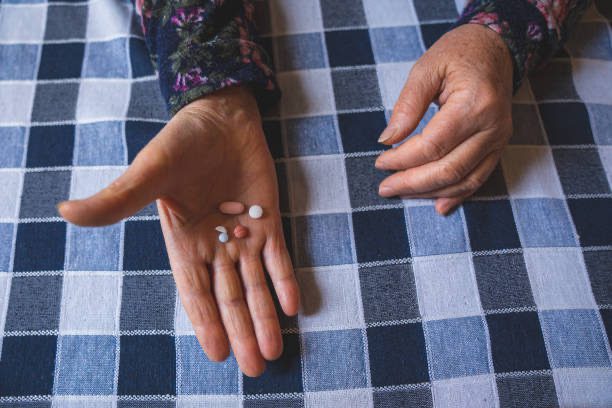
In addition, there are also various dietary supplements (BAAs) available in Ukraine that can help in flushing out excess fluid from the body. Some of them include:
- Dietary supplements based on plant extracts with diuretic action, such as green tea extract, elecampane, diuretic herbs, etc.
- Potassium and magnesium supplements to help maintain electrolyte balance and reduce swelling.
- Dietary supplements containing vitamins and minerals to help improve kidney and urinary system function.
Table comparing some dietary supplements with their prices in hryvnias:
| Preparation. | Example price (UAH) | Effectiveness. |
| Green tea extract | 100-150 | *** |
| Elecampane extract | 80-120 | ** |
| Vitamin and mineral complex | 150-200 | ** |
| Birch bud extract | 90-130 | ** |
| Extract of diuretic herbs | 120-180 | ** |
Note:
- *** Very effective
- ** Moderately effective
- * Ineffective
Prices for dietary supplements may vary by region, pharmacy and manufacturer. Before buying any dietary supplement, it is a good idea to check the current prices at local pharmacies.
- Before using dietary supplements, be sure to consult your doctor.
- Dietary supplements are not medicines and cannot replace medical care.
Ointments and creams to relieve leg swelling
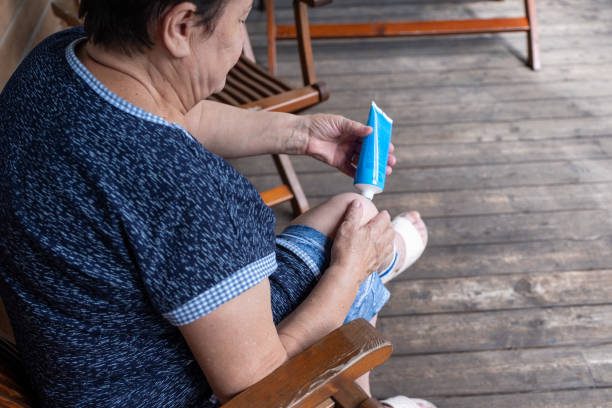
In Ukraine, you can find various ointments and creams that can help relieve swollen legs. Some of them include:
- Heparin ointment: Used to reduce swelling and resolve blood clots in superficial veins.
- Venotonics: Creams and gels based on plant extracts (e.g., ginkgo biloba, chestnut, ruta) that improve circulation and reduce swelling.
- Troxevasin (gel or ointment): It has anti-inflammatory and blood-promoting action, helps to reduce swelling and improve the condition of veins.
- Indomethacin ointment: Used to relieve inflammation and swelling in tissues.
- Arnica Extract Creams: Arnica has anti-inflammatory and analgesic properties and can help relieve swelling and reduce soreness.
- Complexes of cosmetic products for legs: Include creams and gels with various active ingredients aimed at improving blood circulation and reducing swelling.
Compression stockings
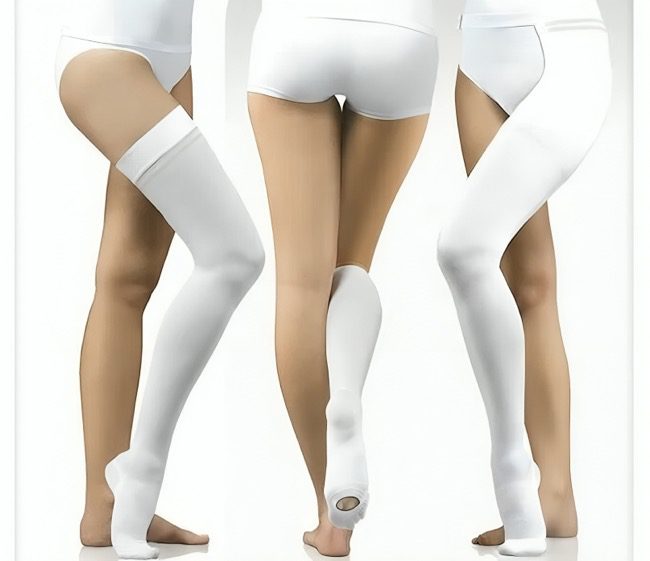
Compression stockings help improve blood circulation and lymph flow, which can help flush excess fluid out of the body.
Important:
- Compression stockings should be sized appropriately.
- If you have any vein diseases, you should consult your doctor before using compression stockings.
Remember:
- Before using any medications, dietary supplements or folk methods to eliminate excess fluid from the body, be sure to consult your doctor.
How to remove excess fluid from the body Finnish sauna, Roman bath or hamam?
A visit to a Finnish sauna, Roman bath or Hamam can help flush excess water out of the body. However, it is important to do it with caution and not to abuse it.
How bathing helps to eliminate excess fluid from the body
- Heat: Under the influence of high temperature, the body begins to sweat profusely. The sweat removes not only water, but also toxins, toxins, salts and other waste products.
- Improved circulation: Hot air and steam dilate the blood vessels, resulting in improved blood and lymph flow. This helps to flush out excess fluid from the tissues.
- Stimulation of metabolism: In high temperature conditions, metabolism is accelerated, which also helps to eliminate fluid from the body.

Recommendations:
- Before visiting a bathhouse, be sure to consult a doctor, especially if you have any health problems.
- Do not go to the bathhouse if you feel unwell.
- Start with short sessions (5-10 minutes) and gradually increase the time spent in the bath.
- Drink plenty of water before, during and after your visit to the bathhouse.
- Do not drink alcohol before visiting the bathhouse.
- Listen to your body and don’t overload yourself.
Finnish sauna:
- Temperature: 80-100°C
- Влажность: 10-20%
- Effects: Dry heat
- Pros: Fast and effective fluid elimination
- Cons: It can be too hot and stuffy for people with sensitive cardiovascular systems
Roman bath:
- Temperature: 50-60°C
- Влажность: 40-60%
- Effects: Moist heat
- Pros: Less hot and more comfortable than a Finnish sauna
- Cons: Not as fast fluid output
Hamam:
- Temperature: 40-50°C
- Влажность: 90-100%
- Effects: Steam
- Pros: Gentle and gentle action
- Cons: Not as fast fluid output as a Finnish sauna or Roman bath
Important:
- It is not recommended to visit the bathhouse for people with hypertension, ischemic heart disease, arrhythmia, heart failure, bronchial asthma, acute inflammatory diseases, as well as pregnant women.
- After visiting the bathhouse, it is necessary to rest and recover.
Remember:Remember:
- Visiting a bathhouse can be beneficial for flushing excess fluid out of the body, but it is important to do so with caution and not abuse it.
- Before visiting a bathhouse, be sure to consult your doctor.
How to determine the percentage of excess water in your body

There are several methods for determining the percentage of excess water in the body:
1. Bioimpedance analysis:
- This is the most accurate method.
- It is based on measuring the resistance of the electric current that passes through the body.
- The percentage of water content in the body is calculated based on the resistance ratio and other parameters such as height, weight, gender and age.
- Bioimpedance analysis can be done at a medical facility or fitness club.
2. Hydrostatic weighing:
- This method is also reasonably accurate.
- It is based on measuring a person’s weight in the air and underwater.
- The percentage of body water content is calculated based on the difference in weight.
- Hydrostatic weighing can be carried out in specialized laboratories.
3. Anthropometry:
- This method is less accurate than bioimpedance analysis and hydrostatic weighing.
- It is based on measuring the circumferences of different body parts such as waist, hips, chest and arms.
- The percentage of water content in the body is calculated using special formulas.
- Anthropometry can be done on your own.
4. Visual inspection:
- This method is the least accurate.
- It is based on an assessment of a person’s physical appearance.
- Signs of fluid retention in the body can be swelling, puffiness of the face, weight gain.
Important:
- There is no universal method for determining the percentage of excess water in the body.
- The method you choose depends on your goals, capabilities, and budget.
- If you want accurate results, it is recommended that you consult a doctor or fitness expert.
Remember:
- The percentage of water in your body can vary throughout the day.
- It can be influenced by various factors such as physical activity, water intake, menstrual cycle (in women).
- Don’t focus on just one method of determining the percentage of water in your body.
- A comprehensive approach is recommended to assess one’s water balance.
Symptoms and consequences of excessive water content in the body
If you have any of these symptoms, you should see a doctor.Your doctor can help you determine why water is retained in your body and prescribe treatment.
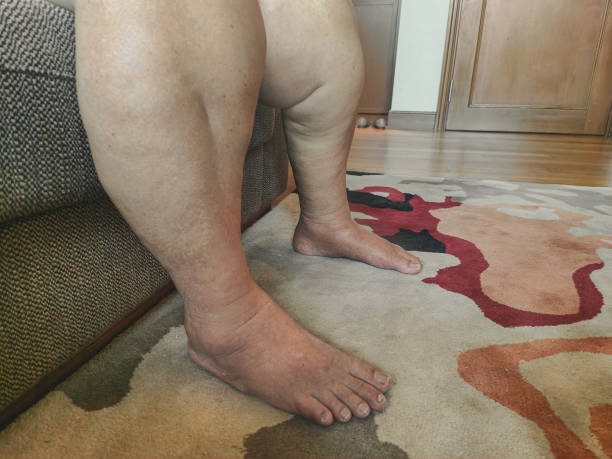
1. edema:
- Excess water accumulates in the tissues, leading to edema.
- The most common swelling is in the legs, arms, and face.
- Swelling can be mild and painless, but sometimes they can be painful and cause discomfort.
Increased blood pressure:2. Increased blood pressure:
- Excess fluid increases the strain on the heart and blood vessels.
- This can lead to an increase in blood pressure.
Weight gain:3. Weight gain:
- Excess water increases body weight.
- This can lead to obesity, which in turn increases the risk of developing many diseases.
Dilution of electrolytes:4. Dilution of electrolytes:
- Excess water can dilute electrolytes in the blood.
- Electrolytes are substances that are essential for many vital functions.
- Their dilution can lead to heart, muscle, and nerve disorders.
5. Heart failure:
- In severe cases, excess water can lead to heart failure.
- This happens because the heart cannot cope with pumping large amounts of fluid.

6. Dyspnea:
- Excess water in the body can accumulate in the lungs.
- This can lead to shortness of breath.
7. Fatigue:
- Excess water can lead to fatigue and weakness.
- This is because the body expends a lot of energy to eliminate excess fluid.
8. Headaches:
- Excess water can lead to headaches.
- This happens because there is increased pressure on the brain.
9. Nausea and vomiting:
- Excess water in the human body can lead to nausea and vomiting.
- This happens because the stomach cannot handle the large volume of fluid.
10. Seizures:
- In severe cases, excess water can lead to seizures.
- This happens because the balance of electrolytes is disturbed.

You should know:
- Excess water in the body can be hazardous to your health.
- It’s important to watch your water balance, but drink enough water and don’t overdo it.
Recommendations:
- Drink clean water throughout the day, follow a drinking regimen.
- Limit your salt intake.
- Increase your intake of potassium-rich foods, make a healthy food diary
- Exercise regularly, maintain a physical activity regimen, and avoid a sedentary lifestyle
- If you have any health problems, be sure to consult your doctor.
Remember:
- There is no quick and magical way to get excess fluid out of your body.
- The best way how to get excess fluid out of your body is to lead a healthy lifestyle that includes a balanced diet, regular exercise and adequate water intake.
Follow these tips from the doctors at Coolaser Clinic, now you know Нow to remove excess fluid from the body and feel better.
Источники:






